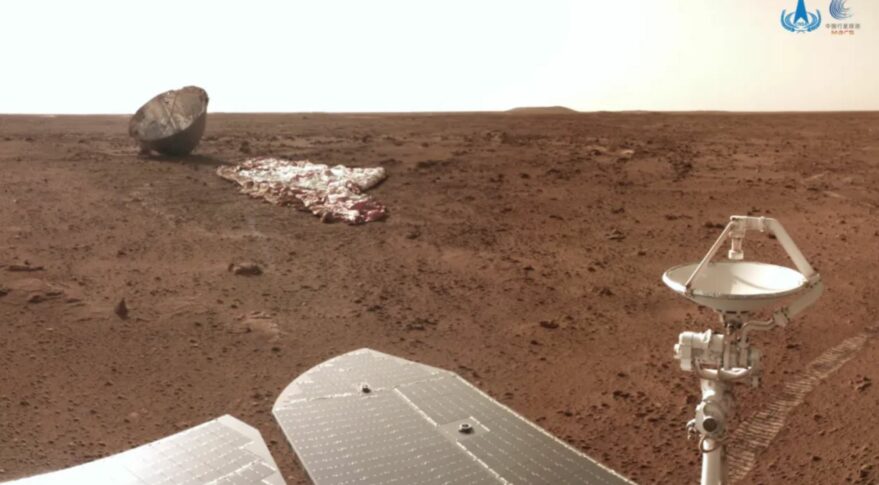China intends to deliver the first rock samples from Mars to Earth in 2031. If the Celestial Empire succeeds in such a feat, it will be two years earlier than NASA. The space agency also plans to deliver samples of Martian rock collected by Perseverance. An ambitious mission to return samples as part of the Tianwen-3 mission was announced this week by Sun Zezhou, the chief designer of the current mission of the Chinese orbiter and rover. This is reported by SpaceNews.

To collect and deliver samples of Martian rock, China plans to launch a spacecraft to the Red Planet at the end of 2028 as part of a mission that will end with the delivery of rock to Earth in July 2031. A three-year mission seems fast enough. But the reason for the tighter time frame is the simplicity of the mission proposed by China: unlike NASA’s more complex plan, which involves searching for a rover and extracting rock samples from its insides, the Chinese propose to plant a specially designed vehicle that will go to Earth after taking soil.
Success of “Tianwen-1”
Last year, the Chinese National Space Administration (CNSA) demonstrated that they have the technology to reach Mars and land a rover on its surface. Returning samples to Earth requires several additional steps, including taking the material and sending it into space, then transferring the samples to the spacecraft returning to Earth.
In any case, both CNSA and NASA missions are very complex and require a huge amount of research and testing. Space agencies are well aware that at any stage everything can go wrong as planned. But for scientists, the rewards of successfully delivering samples to Earth can be huge. The possibility of using modern laboratory equipment to study materials from Mars will provide the best chance to find out whether there was any ancient form of life on the Red Planet. Such a discovery will help scientists uncover some of the secrets of the origin of life on Earth.
Earlier, an elusive element was found in a rare Martian meteorite.
Follow us on Twitter to get the most interesting space news in time
https://twitter.com/ust_magazine
